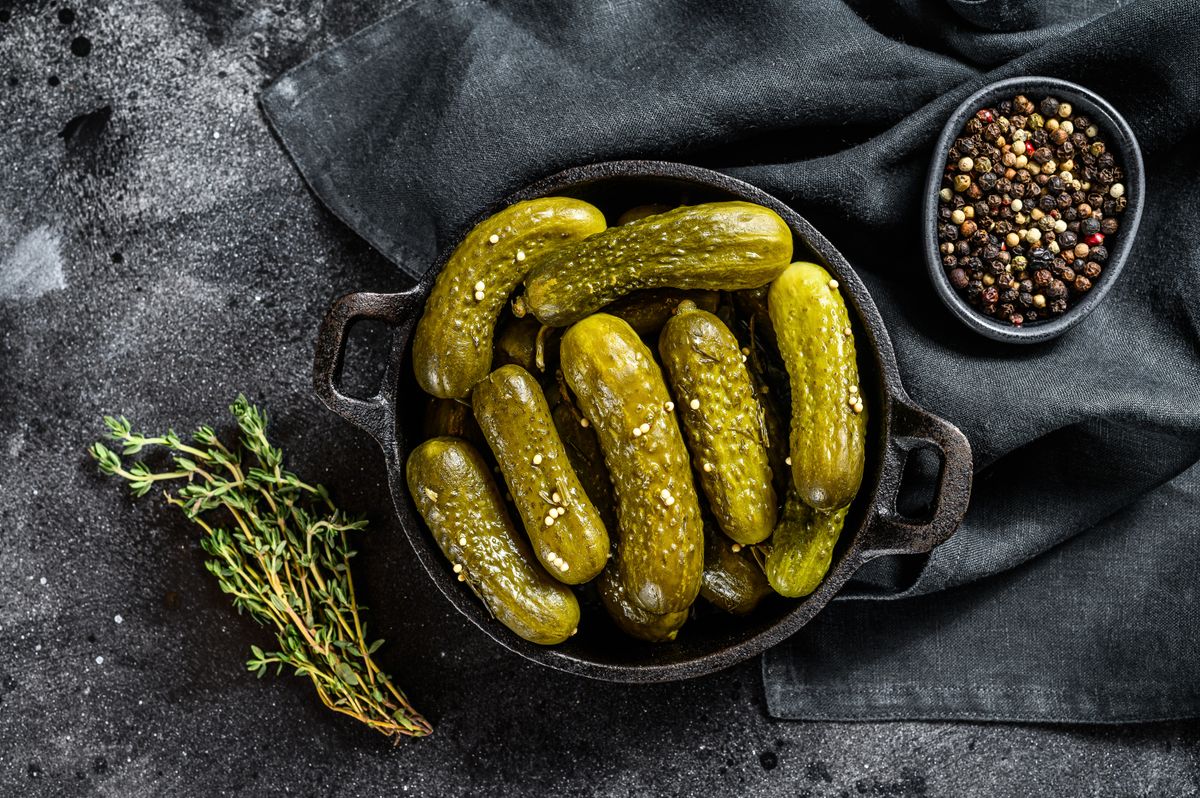With the arrival of warm weather, the anticipation of BBQs, cookouts, beach days, and other joyful gatherings grows stronger. Amidst the variety of culinary delights, one ubiquitous presence persists: pickles. These savory treats effortlessly complement beloved favorites like fried chicken sandwiches, burgers, hot dogs, and deli subs. Conveniently portable, pickles are the go-to snack for people on the move. Yet, despite being crafted from cucumbers and often perceived as a low-calorie option, the question lingers: Are pickles truly beneficial for our health?
The process of pickle production involves the preservation of cucumbers in an acidic liquid, commonly vinegar, and salt. Additional flavorings may also be incorporated. While cucumbers take the center stage as the most typical pickle base, other vegetables and fruits can undergo the "pickling" process too. Consequently, the impact of vinegar and salt on the nutritional value of this snack has left many pondering its true worth.
Exploring the Nutrition Facts of Pickles
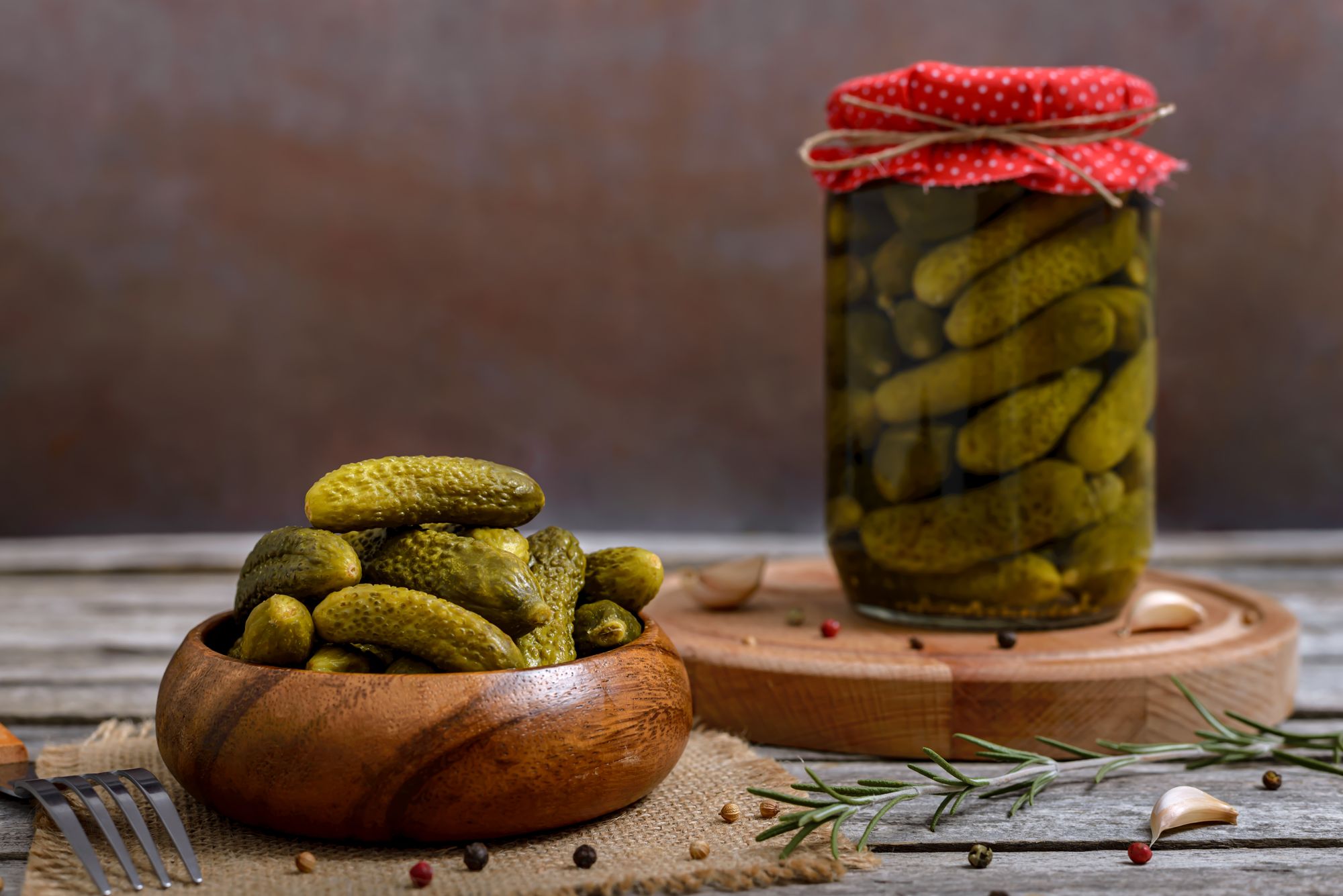
According to the United States Department of Agriculture (USDA), a 100-gram serving of pickles provides the following nutritional information:
- Calories: 14
- Fat: 0.43 grams
- Carbohydrates: 1.99 grams
- Sugar: 1.2 grams
- Fiber: 1 gram
- Protein: 0.48 grams
- Sodium: 808 milligrams (35.13% of Daily Value)
- Calcium: 54 milligrams (4.15% of Daily Value)
- Magnesium: 7.1 milligrams
- Potassium: 112 milligrams (2.38% of Daily Value)
- Vitamin C: 2.1 micrograms
- Vitamin K: 16.8 micrograms (14% of Daily Value)
These figures reveal that pickles offer essential vitamins and minerals while remaining low in calories, fat, and carbohydrates. However, it's important to note that pickles are not completely exempt from potential health concerns, particularly regarding sodium intake. The Food and Drug Administration (FDA) recommends a daily sodium intake of less than 2,300 milligrams, and a mere 100-gram serving of pickles accounts for over 35% of this allowance.
To provide further insights into the health implications of pickles, we consulted two expert dietitians who shed light on their benefits and nutritional considerations. Read on to discover how consuming pickles can impact your body, and for additional guidance on healthy eating, explore the 8 Science-Backed Benefits of Eating Cucumbers.
Exploring the Effects of Eating Pickles: 7 Ways They Impact Your Health
1)Aiding Vegetable Intake:
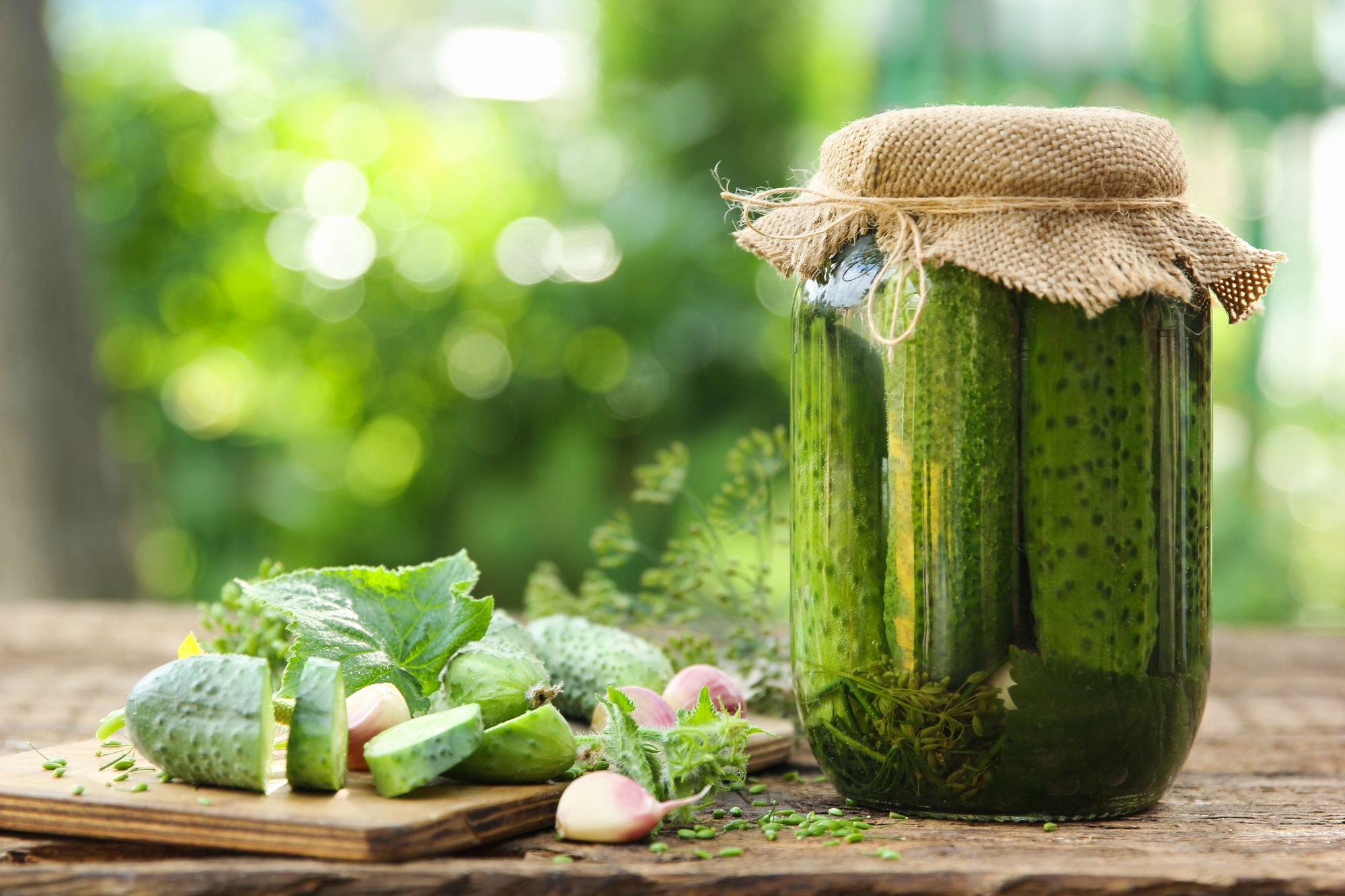
Made from cucumbers, pickles provide a convenient way to incorporate more vegetables into your diet. Registered dietitian Lauren Manaker explains that pickles can help you meet your daily vegetable needs, providing essential fiber and contributing to overall health benefits like reducing the risk of cardiovascular disease, diabetes, and certain cancers. While pickles shouldn't be your sole vegetable source due to their higher sodium content, they serve as a helpful occasional snack.
2) Supporting Gut Health:
Some pickles undergo fermentation, resulting in live probiotics. These beneficial bacteria can promote a balanced gut microbiome and offer advantages for your digestive system. Eating fermented foods like certain pickles may enhance gut health, aid in weight loss, and bolster the immune system, according to Manaker and research studies.
3) Assisting in Weight Loss:
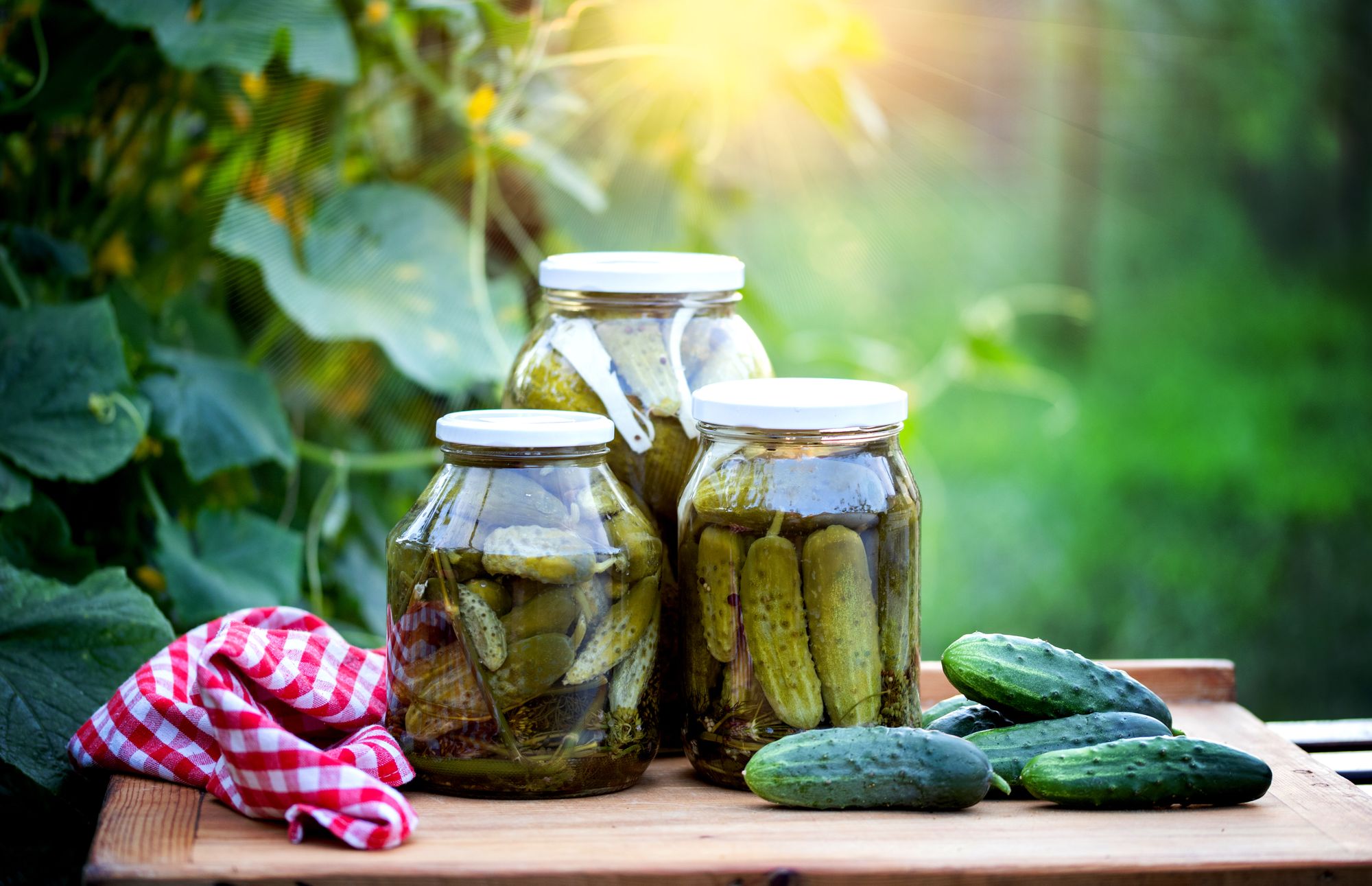
Pickles make for a low-calorie snack, with an average serving containing just around 12 calories. This characteristic makes them a favorable choice for individuals aiming to lose weight or reduce calorie intake. However, personal health needs, such as sodium restrictions or the need for higher protein content, should also be considered when selecting snacks.
4) Promoting Bone Health and Blood Clotting:
Pickles contain vitamin K, which is crucial for bone health and blood clotting. While a serving of pickles doesn't provide your entire daily vitamin K requirement, it can be a valuable addition to your diet, especially when paired with other vitamin K-rich foods.
5) Supporting Immune Function:
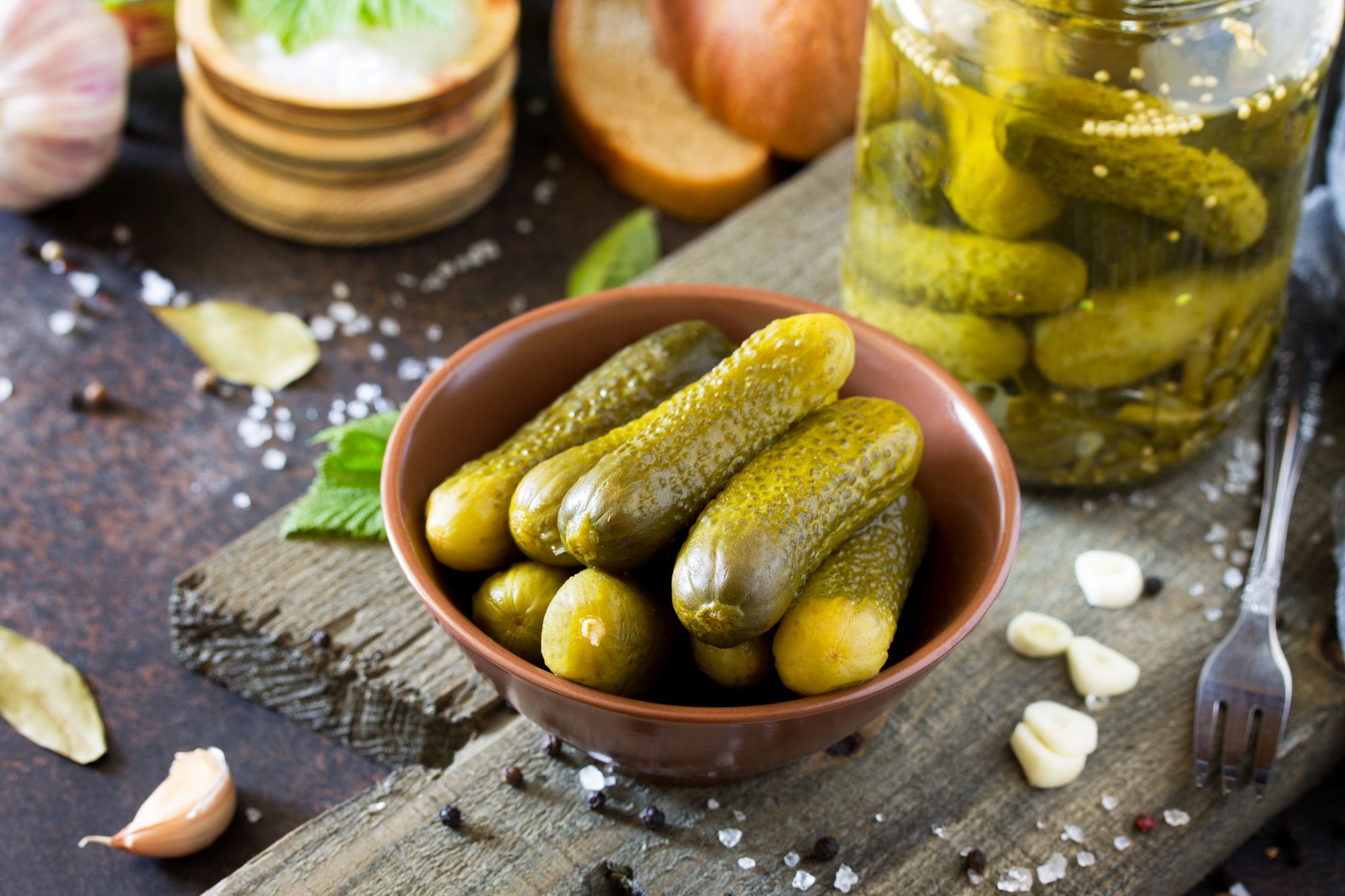
Pickles contribute essential nutrients for maintaining overall good health. They contain small amounts of vitamin C, potassium, calcium, and magnesium. Vitamin C aids immune function, while potassium regulates fluid balance and controls blood pressure. While the quantities in pickles may not be substantial, every source of these nutrients can make a difference when combined with other foods.
6)Enhancing Eye Health:
Pickles contain antioxidants like lutein and zeaxanthin, which act as natural protectors for your eyes. These plant pigments accumulate in the macula region of the eye, guarding against oxidative stress and filtering harmful blue light. Consequently, including pickles in your diet can support better eye health.
7) Considerations for Sodium Intake:
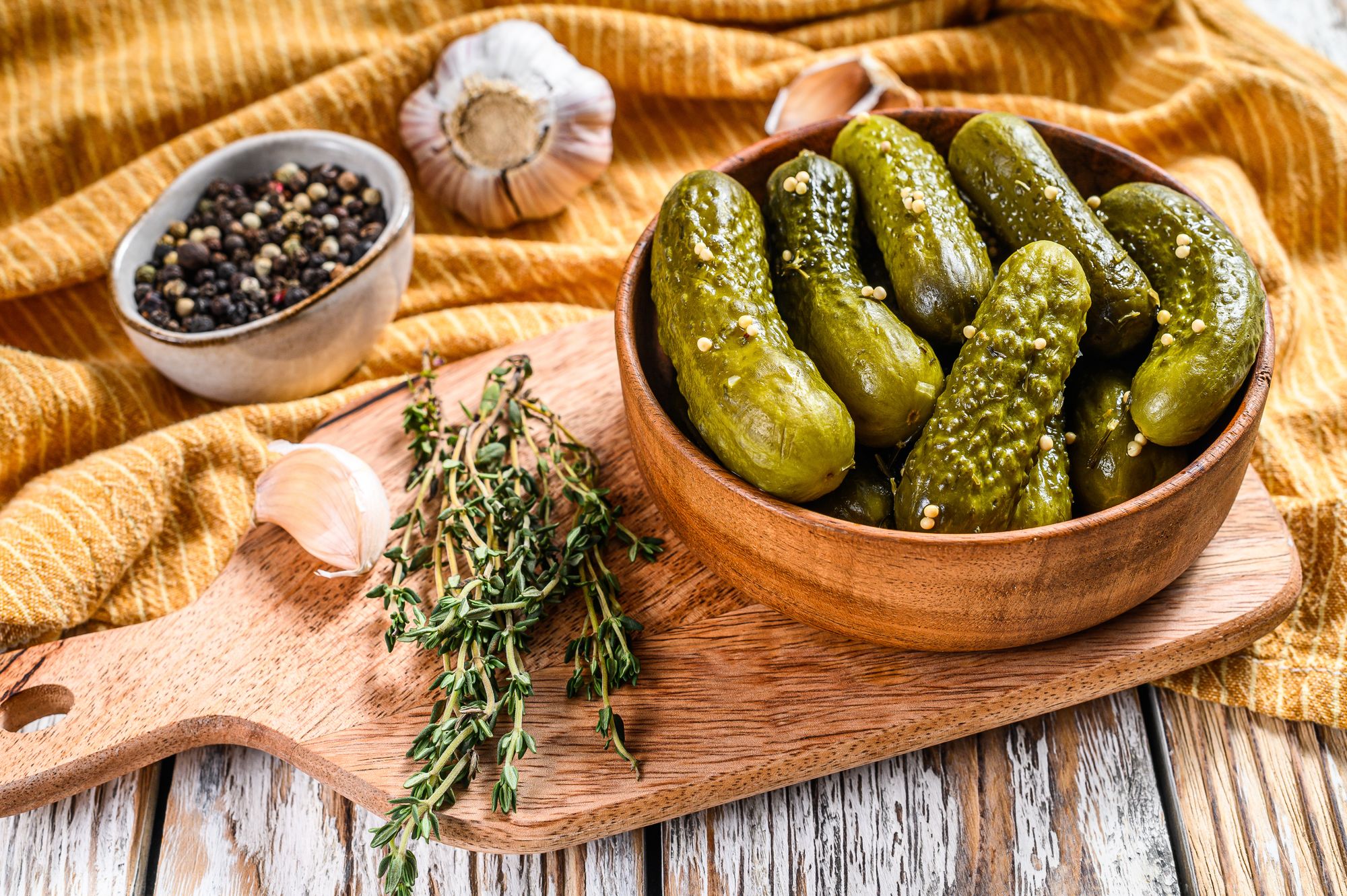
It's important to note that most store-bought pickles have high sodium levels, which can adversely impact blood pressure. Excessive sodium consumption is linked to elevated blood pressure, and individuals with heart problems or those aiming to reduce blood pressure should limit their sodium intake. Pickles can contribute to water retention and unhealthy sodium levels if consumed excessively. Opting for low-sodium pickle varieties and consuming them in moderation is advised.
In conclusion, while enjoying pickles can bring various health benefits, it's crucial to be mindful of sodium intake and select options that align with your dietary needs. Incorporating pickles as part of a balanced diet can contribute to your overall well-being, supporting vegetable intake, gut health, weight management, bone health, immune function, eye health, and more.

